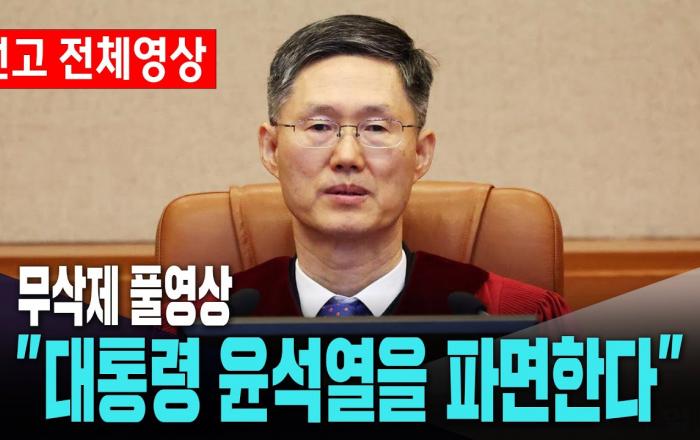The mathematical case against blaming people for their misfortune ?
사람은 자신의 불운에 어느 정도 책임을 져야 할까요?
사람은 자신의 불운에 어느 정도 책임을 져야 할까요?
(David Kinney, Psyche)
원문 보기
미얀마에서 태어난 케니 차우는 1987년 뉴욕으로 이주했습니다. 그는 2011년 해고될 때까지 보석상에서 다이아몬드를 가공했고, 그 돈으로 가족을 위한 집을 샀습니다. 해고된 그는 동생처럼 택시 운전사가 되기로 했고 75만달러(약 8.4억원)를 대출받아 택시 면허를 구했습니다. 그는 개인택시를 몰 수 있게 되었습니다.
한동안은 모든 일이 잘 풀렸습니다. 택시 면허의 가격은 1백만달러(약 11억원) 이상으로 올랐습니다. 하지만 거품은 꺼졌고 우버와 리프트 같은 차량공유 사업이 등장했습니다. 택시 면허의 가격은 폭락했고 그는 융자금을 갚기 힘들어졌습니다. 2018년 그는 스스로 목숨을 끊었습니다.
우리는 차우가 운이 없었다는 데 동의합니다. 하지만 그가 자신의 모든 재산을 하나의 위험한 자산에 투자한 것도 사실이며, 어떤 이들은 그의 불운이 그 자신의 선택에 있다고 말할지도 모릅니다. 그들은 이런 종류의 투자는 일종의 도박이며 책임이 그에게 있다고 말합니다. 이는 너무 냉담한 말처럼 들리지만, 사실 미국인의 상당수는 이런 생각을 가지고 있습니다. 2014년 이루어진 퓨 리서치의 조사에 따르면 미국인의 39%는 가난의 이유가 가난한 이들의 노력 부족이라고 생각합니다. 여기서 말하는 ‘노력’에 자신의 결정이 가져올 위험을 제대로 파악하기 위한 노력 또한 포함된다면, 이는 결국 상당히 많은 미국인들이 각자의 불운에 대한 책임은 각자에게 있다고 생각한다는 말일 것입니다.
나는 이런 관점에 반대합니다. 나는 이를 정치적, 혹은 도덕적 관점에서 반대하는 것이 아니라, 복잡계 과학, 특히 계산복잡성이론의 관점에서 반대합니다. 곧, 인간은 자신의 선택이 가진 위험의 정도를 충분히 정확하게 판단할 능력이 없다는 것입니다. 미래에 어떤 일이 벌어질지를 예측하는 것은 거의 불가능하며, 따라서 정당한 의도를 가졌지만 예측하지 못한 미래 때문에 불운을 겪게 되는 이를 비난하는 것은 정당하지 못한 일이라 할 수 있습니다. 또한, 정당한 믿음에 기반한 행동임에도 제대로 된 보상을 받지 못한 이들에 대해 우리는 그들을 비난할 것이 아니라 동정심을 가져야 합니다.
우선 이 점을 생각해 봅시다. 자신의 행동에 책임을 져야 한다는 것은, 그 행동이 어떤 결과로 이어질지 알 수 있을 때에만 성립하는 말입니다. 하지만 대부분의 경우 이 조건은 만족되지 않습니다. 예를 들어, 차우는 택시 면허 가격의 폭락을 가져올 차량공유업체의 부상을 예상하지 못했습니다. 하지만 그것은 다른 모든 이들 역시 마찬가지였습니다. 기술혁신은 그 혁신이 가진 본질적 특성상 이를 예측하는 것은 불가능합니다. 차량공유업체의 부상을 누구나 예상할 수 있었다면, 투자자들이 일찍 그들에게 투자해 큰 돈을 벌지도 못했을겁니다. 누구도 예측하지 못한 그런 미래를 그 또한 예측하지 못했다는 이유로 그가 자신의 선택에 책임을 져야 한다고 말하는 것이 온당한 일일까요?
책임이란 자신이 관여하는 도박의 명확한 인과관계를 인지하는 경우에만 지워야 합니다. 이는 그 시스템의 서로 다른 변수들이 어떻게 작동하는지, 혹은 서로 영향을 주지 않는지를 알아야 한다는 것입니다. 차우의 택시 면허에 대한 투자가 잘못된 예측이 된 이유는 투기와 기술적 혁신이 관련된 복잡계가 택시 면허의 가격을 서서히 상승시키다가 어느날 한 순간에 폭락시켰기 때문입니다. 택시 면허의 폭락을 정확히 예측하기 위해서는 고도로 복잡한 인과관계를 모두 파악했어야만 합니다.
그러나 계산복잡도 이론은 그것이 불가능한 일임을 말해줍니다. 실제 세상의 인과관계는 그 자체로 매우 복잡합니다. 실제 세상의 인과관계를 찾아내는 일은 이 이론에서 NP-하드라 불리는 종류의 문제입니다. 이는 우리가 가진 데이터가 아무리 많다 하더라도 인과관계에 고려되는 새로운 변수가 추가될 때마다 그 변수를 고려한 인과관계를 파악하기 위한 시간은 기하급수적으로 증가한다는 뜻입니다. 우리의 뇌 또한 이와 유사한 방식으로 세상을 예측하는 것으로 알려져 있다는 점에서 인간 역시 같은 한계를 가집니다.
이러한 한계를 극복하는 방법 중에는, 변수의 수를 제한해 아주 단순한 인과관계만을 보는 방법이 있습니다. 예를 들어, 우리는 석유의 가격은 수요와 공급이라는 두 변수에만 의존한다고 가정합니다. 이렇게 변수를 제한할 경우 인과관계를 찾는 것은 그리 어렵지 않습니다. 철학자 줄리아 스타펠이 주장한 것처럼, 인간은 이런 휴리스틱한 방법을 통해 세상을 이해해 왔습니다. 하지만 복잡한 실제 세상을 이런 단순한 시스템으로 환원해 이해하는 것은 그 자체로 위험한 도박입니다. 우리 삶을 우리가 예측하기 힘든 이유는 우리 또한 경제적, 정치적, 심리적으로 얽힌 복잡계 세상을 살고 있기 때문입니다. 이런 고도의 복잡계는 대부분의 실제 세상이 가진 특징이며 우리가 책임져야할 선택이 있을 때가 오히려 훨씬 희귀한 경우입니다.
——
이러한 고도의 복잡계 세상에서 우리가 선택할 수 있는 한 가지 방법은 어떤 선택에 대해 대안(hedge)을 준비하는 것입니다. 차우는 자신의 모든 재산을 택시면허에 투자했고, 이는 계란을 한 바구니에 모두 담은 것에 해당합니다. 즉, 그는 스스로를 위기에 취약하게 만들었다고 말할 수 있습니다. 따라서 우리는 고도의 불확실성 하에서도 위험을 크게 낮출 수 있는, 가능한한 다양한 전략을 추구해야 합니다.
그러나 문제는 부유한 나라들의 경제적 사회적 제도는 대부분의 개인으로 하여금 모든 자산을 하나의 전략에 투자하게끔 만들어져 있다는 것입니다. 학자금 대출이나 부동산을 구입하기 위한 대출, 또는 택시 면허를 사기 위해서도 한 개인은 자신이 가진 거의 모든 자산을 동원해야 합니다. 곧, 대안적 투자란 충분한 부를 소유한 이들에게만 유효한 방법이며 보통 사람들에게는 무의미한 방법이라는 것입니다. 이는 대부분의 사람들이 승률이 얼마인지 전혀 알 수 없는 도박장에서 자신의 전재산을 걸고 도박을 벌이는 셈이라 할 수 있습니다. 이러한 세상의 불안정성이야말로 우리가 자신의 재산을 잃은 이들에 대해 비난을 가하는 것이 아니라 동정심을 느껴야함을 말해줍니다.
타인에 대해 가져야 하는 태도는 일반적으로 심리적, 도덕적 영역이라 할 수 있습니다. 하지만 이 문제는 정치적으로도 중요합니다. 운이 없었던 이들을 어떻게 대할 것인가는 사회적 불평등을 어떻게 해결할 것인가, 그리고 어디까지를 사회가 해결할 것인가의 문제로 이어집니다. 케니 차우의 죽음과 그와 비슷한 여러 죽음을 생각해 봅시다. 2000년 이후 미국의 기대 수명은 오히려 줄었고, 이는 경제학자 앤 케이스와 앵거스 디튼이 보인 것처럼, 그들이 ‘절망에 의한 죽음’이라 부른 마약 남용과 자살에 의한 죽음이 증가했기 때문입니다. 동정심이 사라진 그 자리에 절망이 싹텄고, 이 절망이 지금 사람들을 죽이고 있습니다.
이를 바꾸는 것은 정치의 몫입니다. 하지만 정당한 의도로 이루어진 선택이었음에도 참담한 결과를 맞게된 이들에 대한 태도를 바꾸는 것은 우리의 몫입니다. 인간이 이 복잡한 세상을 제대로 예측할 수 없다는 사실은 그들에 대한 비난이 공정하지 않다는 것을 말해줍니다. 인간이 가진 자신감과 무관하게, 우리가 알 수 있는 지식에는 명확한 한계가 있으며 이는 누구나 잘못된 선택을 할 수 있다는 것입니다. 우리는 타인에게, 그리고 자신에게 더 동정심을 발휘하는 세상을 만들어야할 의무가 있습니다.
Newspeppermint | By: veritaholic
Kenny Chow was born in Myanmar, and moved to New York City in 1987. He worked for years as a diamond setter for a jeweller, earning enough to buy a house for his family before he was laid off in 2011. At that point, Chow decided to become a taxi driver like his brother, scraping together financing to buy a taxi medallion for $750,000. This allowed him to operate as a sole proprietor, with the medallion as an asset.
For a while, everything went according to plan, with taxi medallions rising in value to more than $1 million. Then the bubble burst, and along came ridesharing apps such as Lyft and Uber. The value of Chow’s medallion plummeted, and it became harder to keep up the payments on his loan. In 2018, he took his own life.
We’d all recognise that Chow’s situation is unfortunate. But, arguably, he took a calculated gamble when he purchased a risky asset, and so some of us might be tempted to blame him for his own misfortune. According to one school of thought, when these sorts of bets don’t pan out, only the gambler is to blame. That might sound callous, but it’s indeed the attitude that many of us seem to hold, at least in the United States: a 2014 Pew Research report found that 39 per cent of Americans believed that poverty was due to a lack of effort on poor people’s part. When ‘effort’ includes an inability to properly weigh up the risks inherent in a decision, this suggests that, in the end, many of us think that people are responsible for their own bad luck.
I disagree with this view. But my reasons aren’t solely political or moral in nature. Rather, insights from complexity science – specifically, computational complexity theory – show mathematically that there are hard limits on our capacity to make accurate and precise calculations of risk. Since it’s often impossible to get a reasonable sense of what will happen in the future, it’s unfair to blame people with good intentions who end up worse off as a result of unforeseen circumstances. This leads to the conclusion that compassion, not blame, is the appropriate attitude towards those who act in good faith but whose bets in life don’t pay off.
The starting point is to note that, for people to be held responsible for their actions, they have to know about certain features of the world. In many cases, even this minimal condition for blameworthiness isn’t satisfied. For example, Chow would have struggled to predict that the rise of ridesharing apps would crater the market for taxi medallions in New York City – but so, too, did most of us. By their very nature, technological disruptions are difficult to foresee; if they were easy to predict, early investors in these technologies wouldn’t get so rich. Such a low bar for blameworthiness seems too harsh to be plausible; how can any of us be blamed for failing to spot trends that almost no one was able to see, despite the significant material incentives for doing so?
The bar for blameworthiness can be made more precise by saying that, in order to be blamed for a gamble, people must possess an accurate causal model of the system in which they act. That is, they must know how different variables in the system do or don’t affect one another. Chow’s bet on a taxi medallion went poorly because of a complex causal nexus of speculation and technological development that led the price for taxi medallions to rise steadily before falling precipitously. To predict the collapse in the price of taxi medallions without the benefit of luck, one would need to have a crisp picture of this labyrinthine causal structure.
Under conditions of extreme complexity, it’s rarely the case that people meet the bar for blameworthiness
Here’s where computational complexity theory kicks in. It turns out that learning the causal structure of real-world systems is very hard. More precisely, trying to infer the most likely causal structure of a system – no matter how much data we have about it – is what theorists call an NP-hard problem: given a general dataset, it can be fiendishly hard for an algorithm to learn the causal structure that produced it. In many cases, as more variables are added to the dataset, the minimum time that it takes any algorithm to learn the structure of the system under study grows exponentially. Under the assumption that our brains also learn by running algorithms, these results apply to human reasoning just as much as they apply to any computer.
One way to get around these constraints is to assume that the real world has a relatively simple causal structure: for example, we could assume that no variable in a system (say, the price of oil) depends on more than two other variables (say, demand and supply of oil). If we restrict the possibilities in this way, then estimating a causal structure becomes less difficult. Such heuristic approaches are a crucial part of how humans actually form beliefs, as the philosopher Julia Staffel has argued. However, treating a complex system as though it’s simple is a dangerous game; heuristics can misrepresent the world in consequential ways. Indeed, the unpredictability of the course of our lives is partly due to rich causal complexity of the social world, with its interlocking web of economic, political, psychological and other factors. Under these conditions of extreme complexity, which are typical of most real-world systems, it’s rarely the case that people can ever meet the bar for blameworthiness described above.
A better way for a person to deal with the overwhelming complexity of the social world is to hedge their bets. By investing so much of his worth in a taxi medallion, Chow put all his eggs in one basket. So, you might say, he made himself particularly susceptible to ruin. What individuals should do instead, perhaps, is pursue a diverse range of offsetting strategies that eliminate or drastically reduce the risk of catastrophe, even under conditions of severe uncertainty.
The problem is that much of economic and social life in affluent countries is structured to require individuals to commit most of their resources towards one strategy for pursuing a flourishing life. Taking out a student loan or mortgage, or buying a taxi medallion, are all strategies that require a large, if not total, commitment of a person’s financial resources. Here, real hedging would require us to start from a place of considerable wealth, and so it isn’t a viable strategy for many. Most of us remain consigned to placing big bets in a casino where it’s effectively impossible to know the underlying odds. The precarity of this situation means that compassion, not blame, is the appropriate attitude to have towards those who end up on the losing end of these bets.
Questions about the attitudes that we ought to have towards others are psychological and moral in nature. But they’re also politically significant. How we regard those who end up less fortunate informs how we address social inequality, and the extent to which we care about it. This brings us back to Kenny Chow’s death, and indeed, the deaths of so many others. Since the year 2000, life expectancy in the US has fallen, as the economists Anne Case and Angus Deaton have shown – and this decrease has been driven almost entirely by an increase in what they call ‘deaths of despair’, such as drug overdoses and suicides. Despair thrives where empathy is missing; right now, our lack of compassion for one another is killing us.
Reversing this trend requires a policy response, but it also requires a shift in our attitudes towards those who end up worse off as a result of risky but well-intentioned decisions. The limits of our ability to infer the complex causal structure of the social world lead directly to the conclusion that blame isn’t appropriate. No matter how smart we think we are, there’s a hard limit on what we can know, and we could easily end up on the losing end of a big bet. We owe it to ourselves, and others, to build a more compassionate world.
<Copyright © US BUSINESS NEWS TV, Unauthorized reproduction and redistribution prohibited>
Managing Editor 기자 다른기사보기












